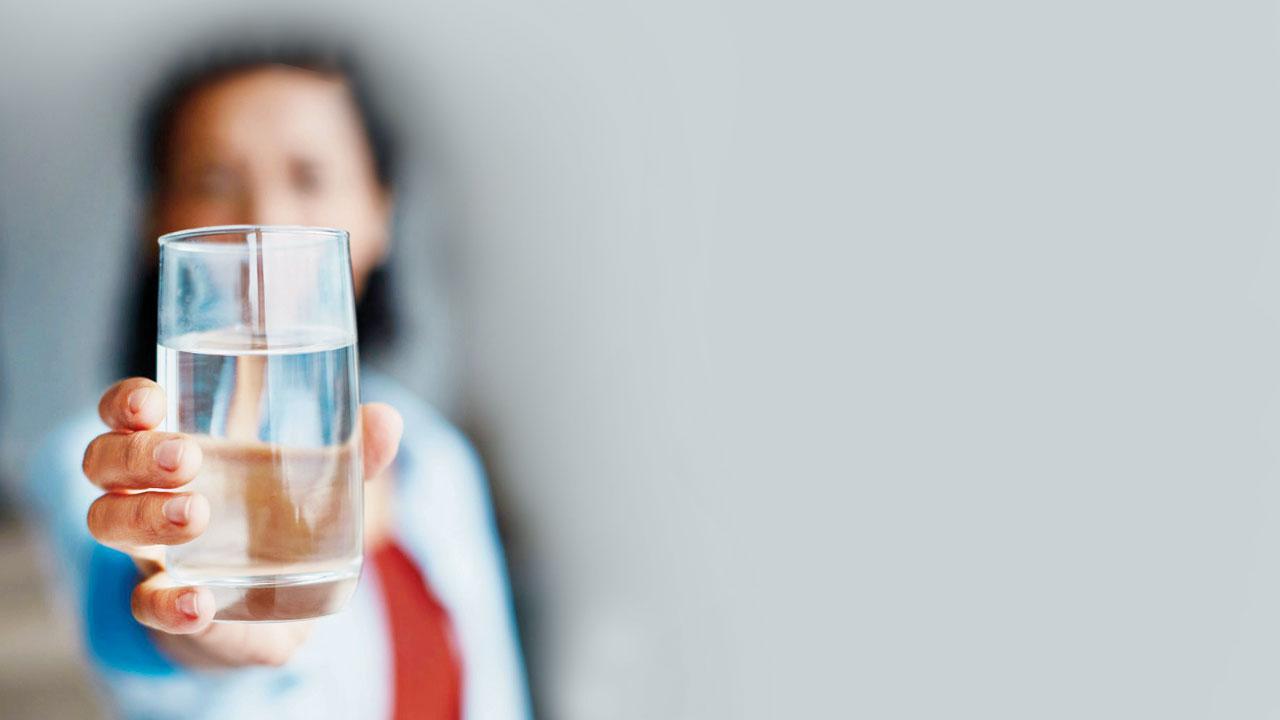Nearly 50 years after his sudden death at 32, a research in Clinical Kidney Journal reveals that Bruce Lee died of hyponatremia caused by ODing on water. Doctors discuss over-drinking of water

Representation pic
What is hyponatremia?
ADVERTISEMENT
Water requirements of an individual vary from one person to another, depending on factors like age, gender, health, weather and physical activity. Normal water intake for males is 3.5 to 3.7 litres, and for females is 2.5 to 2.7 litres. But when you drink too much water, your kidneys can’t get rid of the excess, and the sodium content of your blood gets diluted. This is called hyponatraemia.

This drop in serum sodium can cause various symptoms like headaches, fatigue, lethargy, nausea, vomiting, dizziness, confusion, cramps and may lead to a life-threatening coma in severe cases. Certain medical conditions also lead to overhydration like congestive cardiac failure, liver disease, and kidney diseases. Psychogenic polydipsia (PPD) or self-induced water intoxication (SIWI) is also commonly seen in psychiatric disorders.
Dr Manjusha Agarwal, senior consultant, internal medicine, Global Hospital, Parel
Water retention in kidney diseases
A normal kidney filters 180 litres, then concentrates it to 1.5 litres which come out as urine. Any kidney disease usually causes water retention resulting in high BP, heart failure and lung congestion. That is why in most advanced kidney diseases water restriction is essential.

Moreover, three organs — the kidney, heart and liver are essential to regulate water homeostasis in the body. So all heart diseases causing pump dysfunction, and chronic liver diseases usually require salt and water restriction.
As people age, the capacity of the kidney to manage excess water gets impaired. So, a common habit of drinking three to four glasses of water early in the morning is not a good idea. It can result in acute hyponatremia causing diminution or loss of consciousness.
When to fill your glass?
There is no fixed quantity of water prescription for different ages or body types, there are only some common guidelines. Heavy exercise, hot environment, and high-protein diets call for consciously increasing water intake. In usual circumstances, thirst is an excellent guide to the water requirement of the body as the thirst signal is titrated to salt and water content in the blood.
No fad liquid diets

Liquid-only diets are not suited for the hardware of the human body. It can result in seriously low sodium in the body causing brain swelling with dangerous consequences like drowsiness, coma and even fatality. This is especially so if there is any underlying kidney disease with a diluting defect.
Dr MM Bahadur, director, Administration Nephrology Department, Jaslok Hospital and Research Centre, Mumbai
Water intake checklist
One size doesn’t fit all, and a water-consumption guideline differs for people and is dependent on their thirst sensation and underlying problems. One can say that girls aged nine to 13 years can drink 1.3 to 1.6 litres per day and boys nine to 13 years need 1.5 to 1.8 litres per day. Adults will need around two litres of water per day. Older adults should have at least 1.8 litres of water daily. If one drinks other liquids such as nimbu pani or coconut water, then speak to an expert for guidance regarding the right amount of liquids suited for you.
Over and dehydration
Water intoxication or water poisoning means disruption of the function of the brain that happens due to too much water intake. Increased water intake means there will be frequent trips to the washroom and even during the night-time. You are drinking more water than required in case you urinate over ten times a day. Overhydration can even lead to swollen feet, hands, and lips. When electrolyte levels go down due to overhydration, one will notice shaking, and pain in the arms and legs. Thus, one will experience cramping and muscle spasms.
On the other hand, if you are dehydrated for a long time then you can suffer urinary tract infections, kidney stones, and even kidney failure. If your electrolytes are out of balance due to dehydration then you can become unconscious and also get seizures. Moreover, dehydration can also lead to low blood pressure.
Other liquid intake: ORS and coconut water

People generally have coconut water and Oral Rehydration Solution (ORS) if they are dehydrated. Coconut water is taken when one’s blood pressure rises. Drinking a lot of coconut water may lead to excess consumption of potassium inviting diarrhea. Commercially prepared coconut water carries added sugars or artificial sweeteners, which may trigger digestive discomfort and acidity. ORS should only be used when prescribed by a doctor in case of diarrhoea.
Dr Puneet Bhuwania, consultant nephrologist and kidney transplant physician, Wockhardt Hospital, Mira Road
 Subscribe today by clicking the link and stay updated with the latest news!" Click here!
Subscribe today by clicking the link and stay updated with the latest news!" Click here!







